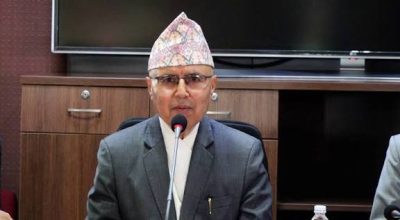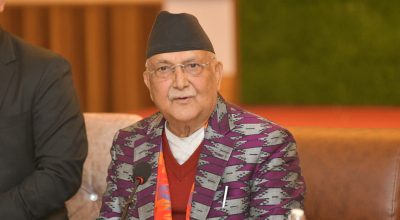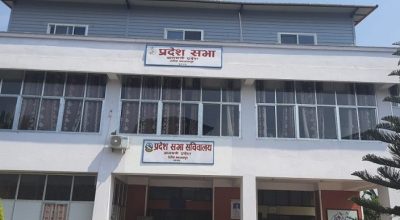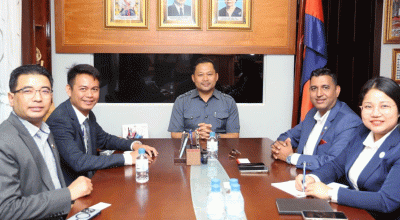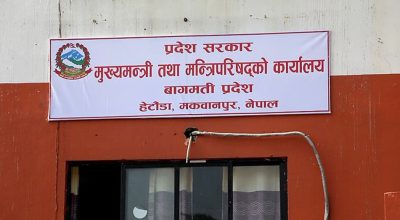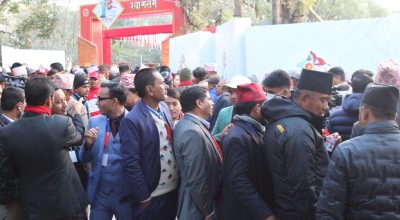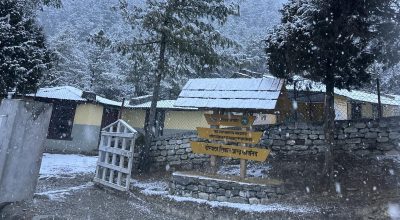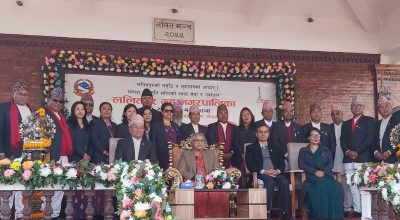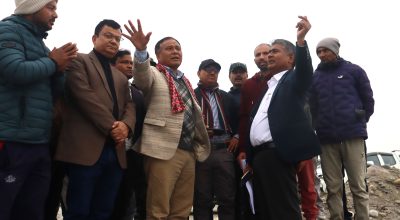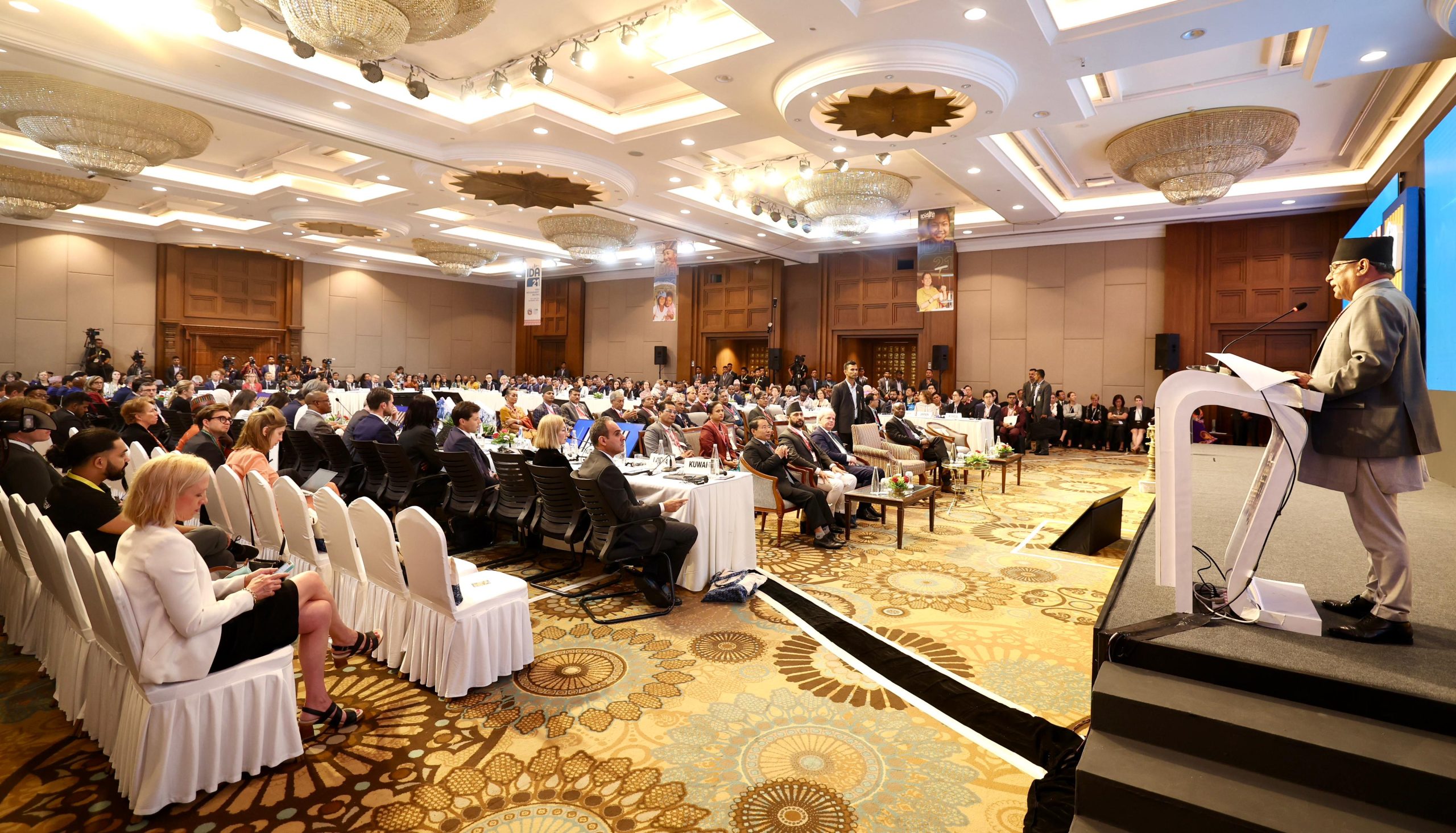
Pushpa Kamal Dahal ‘Prachanda’
Namaste and a warm welcome to all the delegates and members of the World Bank management.
It is an immense honor to host this important IDA21 meeting in Nepal, a country renowned for its natural beauty with enormous development potential and resilience. On behalf of the Government of Nepal, I extend heartfelt greetings to all the esteemed IDA Deputies, Borrower Representatives, World Bank management teams and entire IDA family. This gathering is not only a testament to our collective commitment to sustainable development but also an acknowledgment of the challenges we are facing, particularly by ensuring much-needed development finance to the recipient countries for the next three years.
Nepal has been an active IDA borrower for over six decades. At this point, I want to remind us that we are celebrating 60 years of IDA impact. This did not happen overnight. The impact is because you stayed with us over the course of our journey. During this period, IDA has been a major source of development finance for us and has delivered impact. With this support, Nepal has achieved significant outcomes in infrastructure building and social development. We highly appreciate the World Bank’s support in rebuilding our country after the devastating earthquake of 2015.
We would like to request you to continue the same moving forward. I agree that we have capacity constraints in a new federal context, project execution performance is slowing and spending is low. We may need to restructure our policy frameworks. But policy changes cannot take place overnight in a democratic system. That’s why you are here, to support us with patience to continue our development aspirations, to increase the speed and impact of IDA and to build a common hope. As our journey is far from complete, we require more resources to sustain and accelerate this progress.
I am deeply touched by the proposed focus areas of IDA21, which align perfectly with our core priorities – human capital, environmental sustainability, poverty reduction, energy access, connectivity, and digitalization. Additionally, addressing gender, jobs, fragility, and private investments as key guiding areas of our development is crucial. I believe the IDA21 policy package embodies a strategic, streamlined, and outcome-oriented approach to international development, designed to maximize the impact of investments and support for client countries.
For Least Developed Countries like Nepal, concessionality is critical. We are vulnerable to multiple crises, and there is a genuine risk that our hard-won development gains could be reversed. Climate change impacts have further increased our vulnerability. Nepal, despite contributing negligibly to global emissions, is disproportionately affected by the adverse effects of climate change. We are advocating for climate justice to compensate for the loss and damage incurred due to circumstances beyond our control.
After having political stability, Nepal is now firmly on the path to economic development, harnessing its untapped potential. Our strategic location between two of Asia’s largest economies, our abundant hydropower resources, thriving tourism and agribusiness sectors, and our young hardworking population are our key strengths.
However, we have faced significant challenges, including episodes of devastating earthquake, disasters, global pandemics, and global economic headwinds which have caused substantial output losses and hindered our progress towards economic prosperity. In order to ensure sustainable and resilient growth, we are adopting our homegrown Green Resilient Inclusive Development (GRID) approach, prioritizing ten key transition sectors and actions to be accomplished over the next decade.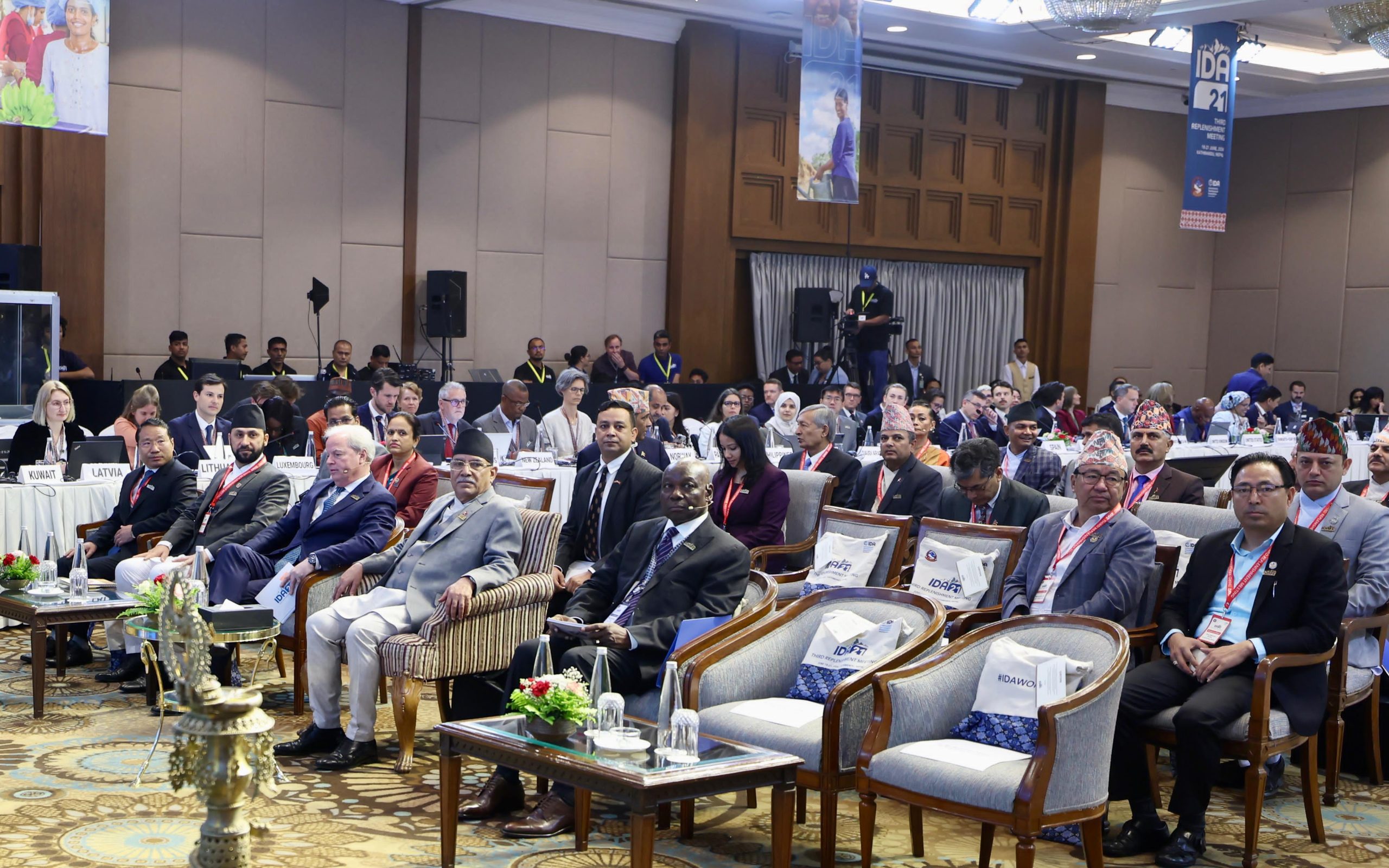
Nepal’s development priority and GRID approach aligns with the World Bank evolution roadmap and global challenge programs. IDA’s commitment to strengthening country-driven model will empower countries to take ownership of their development agendas, foster inclusive stakeholder engagement, and build robust institutions and systems. It is important to create a more equitable and resilient global development landscape by provisioning a programmatic approach that allows implementation flexibilities to the recipient countries. Realizing this fact, we wish to closely working with IDA and other stakeholders to streamline this approach in the IDA21 cycle.
Please allow me to recall that advanced economies reaped substantial benefits from the Industrial Revolution due to their early adoption of mechanized production, access to capital, and ability to invest in infrastructure and innovation. This period marked a dramatic increase in productivity, economic growth, and improvements in living standards. In contrast, mainly Least Developed Countries were left behind largely due to inadequate infrastructure, limited access to capital and technology, and political instability. These factors delayed their industrialization, technological advancements and economic prosperity.
I believe, the time has come to address the development challenges of those countries, who were left behind during the Industrial Revolution, to ensure global peace and shared prosperity. By fostering collaboration and providing equitable access to resources, technology, and investment, we can address historical disparities and promote inclusive growth. Strengthening international partnerships, enhancing capacity-building, and supporting sustainable development initiatives in those countries will not only uplift these nations but also contribute to global stability and economic resilience.
Despite our concerted efforts to accelerate inclusive growth, we face fiscal constraints, deficits and increasing debt servicing obligations, which create a substantial resource gap in financing our Sustainable Development Goals (SDGs), Nationally Determined Contributions (NDCs), and infrastructure development. Our domestic resources alone are insufficient. Therefore, we aim to leverage private capital, attract Foreign Direct Investment, generate additional employment opportunities, accelerate economic activities, and enhance domestic revenue mobilization while considering change on financing landscape after graduation from LDC status in 2026.
Our priority must be investing in human capital, particularly in health and education, as well as developing quality and resilient infrastructure and transforming of lives of our people. Emphasizing digitalization, investment in productive sectors, fostering entrepreneurship, and enhancing skill development are essential to creating jobs, promoting inclusivity and accelerating growth. Together, our utmost responsibilities are towards climate action, responding to fragility, supporting small states, and ensuring water and food security.
I am confident that this august gathering will succeed in building a strong consensus among donors and borrowers on policy priorities and result frameworks for next three years. More importantly, I believe we will agree on the necessity of record-high pledging to address the unprecedented crises of our time. I would like to witness the vast impact of IDA in recipient countries including Nepal, and to the importance of these resources to help us realize our full potential.
Before I conclude, I wish \this meeting a grand success and hope you have a pleasant and memorable stay in Nepal. Our beautiful country will surely leave you feeling that one visit is not enough. With the spirit of our culture “ATITHI DEVO BHAWA”, you all are well taken care of. The Government of Nepal is committed to providing all necessary support to ensure the success of this important event.
Finally, I would like to express my sincere gratitude to the World Bank Group management and the IDA family for their trust in Nepal and longstanding cooperation in our development endeavors.
Prime Minister Pushpa Kamal Dahal ‘Prachanda’ was addressing the opening of IDA21 Replenishment Meeting in Kathmandu on June 18, 2024.





